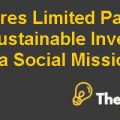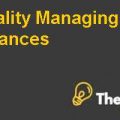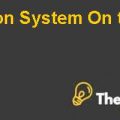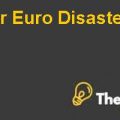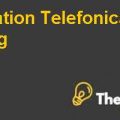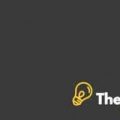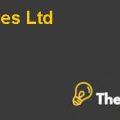
Campaign against the Bujali Project
IRN is working as a non-governmental organization to eliminate Ugandan citizen’s difficulties in terms of raising their living standards and to help the people to work on their poverty reduction methods. As an NGO, IRN consider raising its voice for the right of Ugandan citizens its prime responsibility. IRN has also worked on the research related to the large dam build in the world and provides authentic reasons, facts and figures in these dams’ construction decisions. IRN also runs campaignsagainst the destructive activities. In case of bujagali dam IRN’s efforts are remarkable and beyond their duties towards society
Actions to be taken
The IRN team actions on June 2002 IRN's mission are to protect rivers and defend the rights of communities that depend on them, to encourage better ways of meeting people’s needs for water, energy and to protect from damaging floods. Though IRN usually opposes Dam projects, it should be involved with the Bujagali Dam project. The participation of
The IRN gives the opportunity to have an alternative view of the project regarding its economic and social efficiency forecasts. The involvement of the NGO that has no economic interest in the realization of the project will also minimize the effects of corruption on a given project. True, but they might be adding a lot of costs to the deal. By June 2002, IRN received a leaked copy of the Inspection Panel’s final report. The major findings of the Panel report were neglecting the analysis of alternative power supply options by the World Bank. This deficiency of the economic and financial analysis of the project regarding the forecast of electricity demand, the analysis of cost of export affordability are the factors that were contributing negatively. The risks implied by the delay of policy reforms violate several Operational Policies by the World Bank’s management in preparing the Bujagali project. As we can see, there is valuable information in the report that means that IRN should have made the report available for the public in order to give the Uganda people to get a better power deal.
Recommendations, Advantages and Disadvantages
As an AES executive walking away or going ahead with the project? According to the Inspection Panel’s report, there were many omissions in the project regarding both environmental issues and future cash flow forecasts. But the main problems are connected with the investigation of AES, by the Ugandan Inspectorate of Government and the US Justice Department for alleged bribery, in violation of the US Foreign Corrupt Practices Act. June: the World Bank board approves management response to a report by an independent inspection panel. AES uncovers a bribery scandal and a dispute erupts between traditional healers and the Bujagali over compensation funds. (Richard Kaijuka – the World Bank’s associate director, was bribed $10,000 to support the project. He resigns.) As the cost of the project continues to rise the Government decides to co-fund the project. For AES, this means that going ahead with the project would not be a reasonable decision in the given circumstances and so it pulled out its investment and the Government takes over AES’ assets. The World Bank reassures that it is going to fund the project. Taking into consideration the following factors could make the project more realistic and acceptable:
1. The government should consider the cooperation of the three main participants of power generation.
2. Transmission and distribution company’s improvement of the current distribution transmission lines.
3. Environmental and social cost impacts of currency depreciation would have on power tariffs high level of interest rate (13%) hydrological factors
The World Bank defines NGOs as it is the "private organizations that pursue activities to relieve suffering, promote the interests of the poor, protect the environment. This means that NGO is the one to evaluate the project in not in the sense of profitability but sense of environmental and social acceptability. Since the collaboration with NGOs has become an increasingly important element of Bank-financed activities and NGOs have become major players in the field of international development, it is quite important to engage an NGO.
Advantages
The advantages of collaboration with an NGO are: A non-biased point of view not true at all, some have unbelievable one-sided agendas Possibility to diminish corruption Confidence towards the project and the investors.
Disadvantages
The disadvantages of collaboration with an NGO are: Increasing of costs of the project due to different social and environmental programs Increasing a period of feasibility stage of a project Disclosure of facts that can harm the project. Though for any project both socio-environmental and economic issues are important the engagement of an NGO can give an opportunity to prevent environmental disaster, it can also cause a collapse of economically profitable projects because of the its socio-environmental biased point of view............................
This is just a sample partial case solution. Please place the order on the website to order your own originally done case solution.




